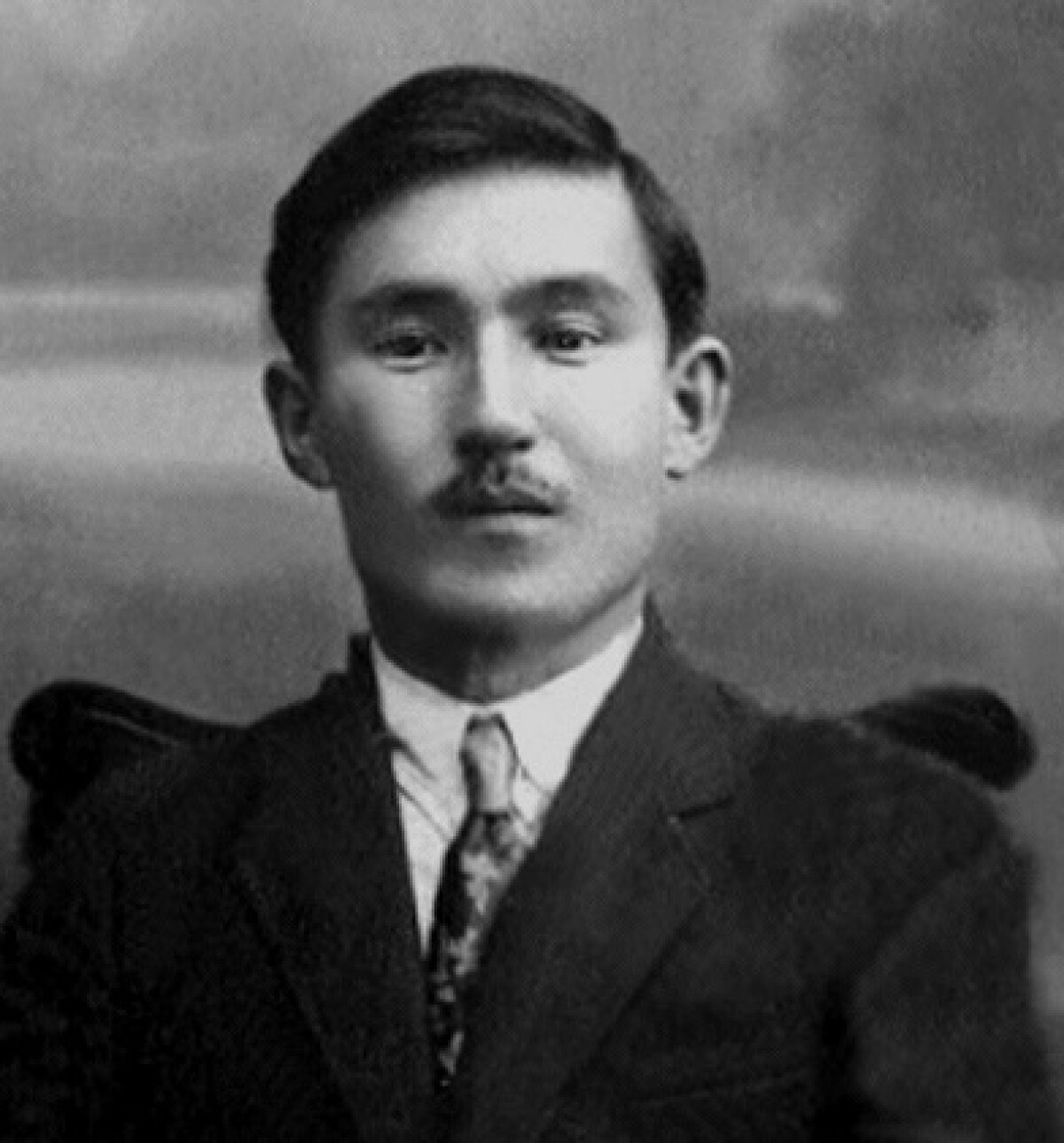Kemengerov Koshmukhamed
Kemengerov Koshmukhamed was the Kazakh writer, the playwright, the literary critic, the scientist and public figure. Koshmukhamed Kemengerov was born on July 15, 1896 in the territory of the present Bayanaul region of the Pavlodar area. In 1910 his father Duysebay-kazhy together with family got over to the Omsk region. The father of future writer was a competent person, aspired, that children got a good education, and the greatest expectations assigned to son Koshmukhamed. Koshke as he was called at home, studied at Omsk parish school, and then terminated two classes of veterinary and medical assistant's school.
In 1913 Koshke Kemengerov entered the Omsk agricultural school, worked, decided to continue education and in 1919 entered the Omsk polytechnic Institute. In 1920 he was enlisted on zoo and veterinary faculty of the agricultural institute. He looked for his place in the world in different fields of activity, but all these years he kept writing. In 1924 after a third year in the Institute Kemengerov was transferred to medical faculty of Central Asian (nowadays Tashkent) State University.
In 1924-1930 gave lectures on the Kazakh language and literature at the same University and in the military college. Kemengerov managed to combine teaching at the University with active public work. He participated in work of the "Alka" literary circle, edited the "Dignity" magazine in Tashkent, and took part in the "Ak zhol" newspaper edition. The same years he studied postgraduate study.
In October, 1930 together with Mukhtar Auezov he was committed to prison in Almaty on forged charge. After a 2 year imprisonment he was banished to Ukraine from where he returned only in 1935. Then he worked in the Sharbakkolsky region of the Omsk region as the inspector in a public health department.
On June 7, 1937 he was arrested again and in November he was sentenced to supreme penalty - execution by a firing squad.
on August 13, 1957 Kemengerov Koshke was rehabilitated in the absence of crime structure. A school in Bayanaul, and a street in Astana are called after his name.
K.Kemengerov's literary activity began in 1915. When Kemengerov was nineteen years old he printed his selection of poetic works in the Aykap magazine: own poems, translations of Russian poets. Among them there are translations into Kazakh A.Pushkin's poems "Prorok" (Prophet) which admire philologists not only with careful attitude to the original, but also with proximity to the size of Pushkin’s verse.
In stories "Na doroge" (On the road, 1923), "Kazakhskiye zhencshiny" (The Kazakh women, 1927), "Duriya" (1927), "Smeloye serdce" (Courageous heart, 1927) are about unequal position of the Kazakh women, a difficult life of the working people. In plays "Zolotoy persten" (Gold ring, 1923), "Vzyatochniki" (Bribe takers), "Staroye ucheniye" (The old doctrine, 1927) Kemengerov exposes social injustice, abuses and ignorance of local feudal lords. In due time these drama works were put on amateur scenes, in art circles and had big success. In 1926 the first Kazakh theater opened with his play "Zolotoy persten" (Gold ring, 1923).
K.Kemengerov wrote works on problems of literary criticism, linguistics, and ethnography. Only in 1924-1929 he published five books, tens stories and articles.
Kemengerov Koshmukhamed was known also as a translator. Being nineteen-year old he translated A.Pushkin's poem "Prorok" (Prophet). Kemengerov wrote and translated articles "Zhizn I tvorchestvo Abaya" (Life and creativity of Abay, 1918), "Iz istorii kazakhov" (From history of Kazakhs, 1924), "O culture I znachenii yazykovedov" (About culture and value of philologists, 1925), "O nekotorykh slovakh" (About some words, 1926), the article "O khudozhestvennoi literature" (About fiction, 1927).
The special place in Kemengerov's works is dedicated to problems of language, its development and a status in new conditions. Kemengerov Koshmukhamed imposed high requirements to language studying; he thought that the person studying foreign language, should first of all know the native language well. Kemengerov himself besides the Kazakh and Russian languages, had a good command of German, English and Arab. Kemengerov Koshmukhamed is the author of "The Kazakh-Russian dictionary" (1925), "The textbook for the Europeans studying the Kazakh language" (1928-1929), etc.
Share:









